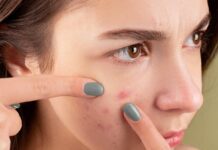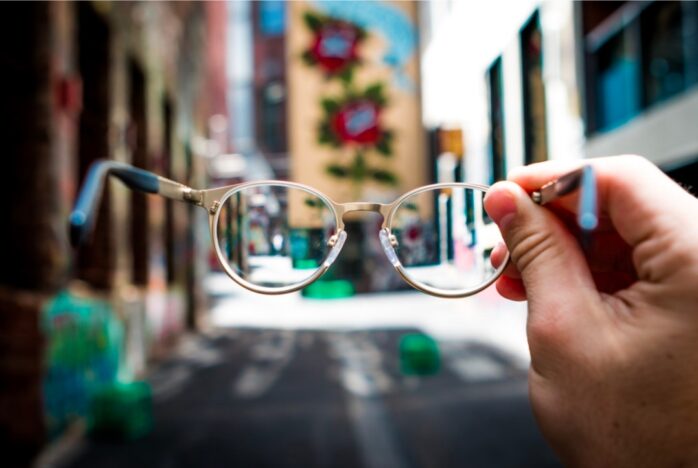
Have you ever been on a scenic drive, and while everyone marvels at the distant mountains or the city skyline, you’re there squinting, trying to make out the details? It’s frustrating, isn’t it?
Bad eyesight can feel like you’re constantly missing out on the world’s beautiful details. But you’re not alone in this visual puzzle. Many of us grapple with vision challenges.
The big question is, why does it happen? Is it just fate, or are there reasons behind it? Dive in with us as we explore the twists and turns of these optical mysteries and get a clearer picture of what might be going on behind those specs.
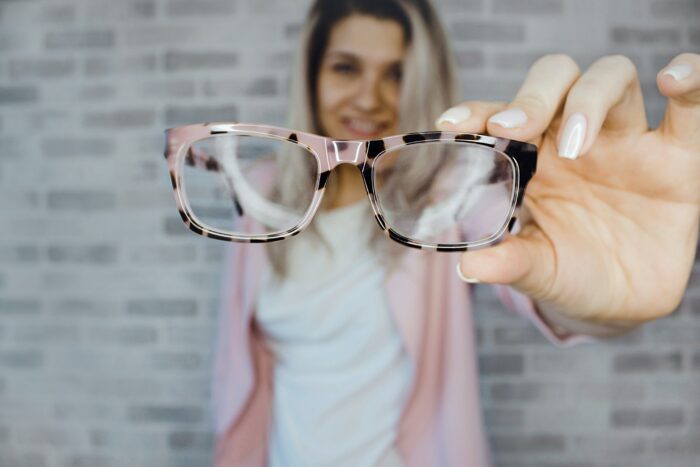
1. Genes Play a Role
Believe it or not, your eyes are like a treasured family heirloom, passed down through the ages. Your genetic makeup doesn’t just determine your hair color or height; it also plays a pivotal role in the quality of your eyesight.
Remember those stories of Grandma navigating the world with her iconic thick glasses? Or how Dad always seems to squint when reading the morning headlines? These things might be clues pointing to your genes influencing those slightly blurry vistas you sometimes encounter.
But on the flip side, if tales of your great-granddad’s sharp vision as a WWII pilot echo in family gatherings, there’s a chance you’ve struck genetic gold in the eyesight department. The family tree, in many ways, dictates how we see the world around us. Whether it’s a predisposition to needing some optical help or enjoying eagle-like sharpness, genes play a part in this visual tale.
2. Too Much Screen Time
The digital age, with its allure of screens, is a double-edged sword. Do you keep watching binge-worthy shows or endlessly scroll on social media? Doing these things keeps your eyes glued to the screen, and sometimes, your eyes protest.
Overexposure can lead to strain and blurred vision. A timely break, paired with a soothing compress for eyes, can be a game-changer.
Are you interested in finding the best warm compress for eyes? There’s a world of choices; your eye doctor might have a recommendation or two (or you can check out our link provided).

3. Lack of Vitamin A
We’ve often heard about the importance of vitamins in our diets, and Vitamin A holds a special place when it comes to our eyes. It’s not just about carrots, though they are a great source. Leafy greens, sweet potatoes, and even dairy can offer a healthy dose.
Vitamin A maintains the eyes’ natural protective barrier and supports night vision. When your diet lacks this vital nutrient, you might experience dry eyes or even night blindness. So, maybe there’s some truth to munching on those carrots and greens; it’s like serving your eyes a wholesome feast.
4. Aging and Its Impact
With each passing year, our bodies tell stories of time and experience, undergoing transformations in various ways, and, you guessed it, our eyes don’t shy away from this narrative. As we cross into the exciting era of our 40s, subtle cues begin to emerge. Maybe you find yourself stretching your arm out to read the restaurant menu, or perhaps the newspaper font suddenly seems to have shrunk overnight.
This very phenomenon is known as presbyopia. A fancy term, right?
But in simple words, it’s just our eyes telling us they need a tad bit of help. It’s a universal experience, touching almost every individual as the hands of time move forward.
That’s why those regular visits to the eye doctor are more than just appointments; they’re proactive steps to keep you ahead in the game. By identifying such changes early, you’re better positioned to make adjustments, be it with the perfect pair of glasses or other visual aids.
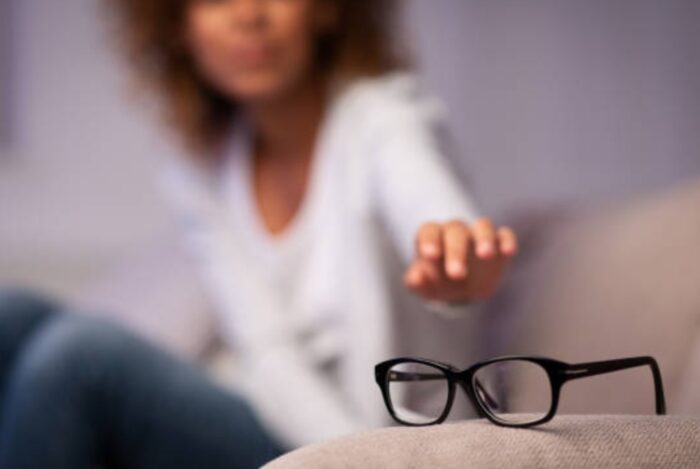
5. The Sun and Its Hidden Hazards
Those golden rays of the sun, while they make for a beautiful day, carry hidden risks. UV rays, though invisible to our eyes, can be quite harmful.
Prolonged exposure without protection can result in conditions like cataracts, where the lens of the eye becomes cloudy. Moreover, the harmful rays can speed up macular degeneration, a condition where the central part of your vision is lost.
Wearing sunglasses with full UV protection isn’t just a style choice. It’s a wise decision for proactive eye care, ensuring your peepers stay safe from the sun’s sneaky side.
6. Accidents and Their Aftermath
Life’s unpredictable moments can sometimes result in mishaps that affect our eyes. Be it a ball from a game, an accidental splash of chemicals, or even dust particles; these incidents can leave a mark.
Even if the initial pain or discomfort subsides, internal damage or inflammation can still be lurking. It’s essential to see an optometrist after any eye injury. They can thoroughly assess any damage and provide guidance on care or treatment, ensuring that minor accidents don’t evolve into major vision issues.
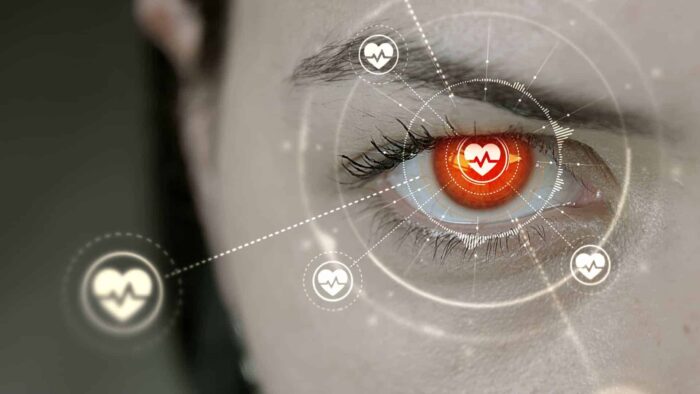
7. Underlying Health Conditions
Diseases like diabetes or hypertension might not seem directly related to the eyes, but they can influence vision. For instance, diabetes can lead to diabetic retinopathy, where blood vessels in the eyes get damaged.
High blood pressure, on the other hand, can strain the blood vessels in your eyes. Keeping these conditions in check and maintaining open communication with both your general doctor and optometrist is essential. They can monitor any potential threats to your eyesight and offer preventive measures or treatments.
8. Inconsistent Eye Care Routines
We often underestimate the importance of consistent eye care. Think of it as a gym routine for your eyes; skipping sessions can have repercussions.
Using old and expired eye makeup, not cleaning contact lenses properly, or avoiding protective eyewear in risky environments can compromise eye health. Regularly refreshing your eye care habits, practicing cleanliness, and being mindful of your surroundings play an indispensable role in keeping those twinkling eyes healthy.

Bad Eyesight: The Wrap-Up
Navigating the maze, we’ve unearthed these eight potential explanations behind bad eyesight. Our eyes truly are our personal windows to the vibrant world around us.
Should those windows get a bit foggy, always remember your local optometrist is there, ready to help clear things up. To a future of vivid colors and sharp details!
For more advice on an array of topics, explore our blog!

